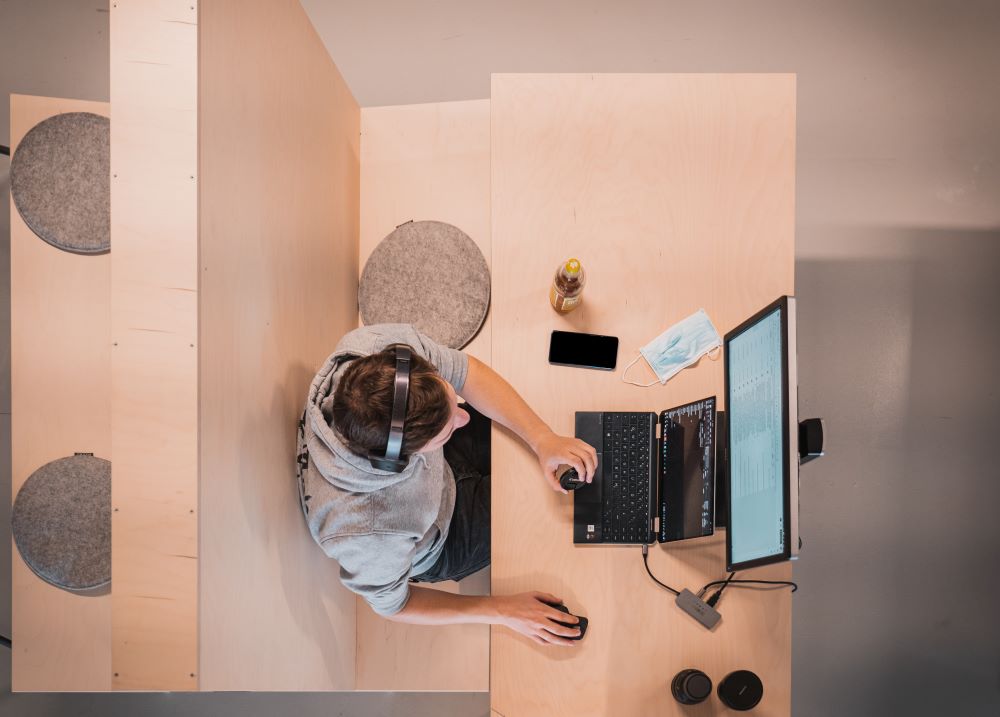Walking While Working: Everyone is Different
Posted by JOANNA C

Are you a fan of a treadmill desk? How about taking business phone calls on a headset while you’re out? If you haven’t tuned into the hype about actively engaging your body while trying to work or study, new research may make you a believer.
The University of Rochester designed an experiment to see if there was any validity for those people who swear they get more done while walking while they work. Treadmill desks, under-desk cycles, and the rise of the standing desk have become more popular ever since “sitting is the new smoking” concept became mainstream.
While we know that standing up refreshes focus, and taking walks combined with breaks from a task boost performance when you come back to it, it wasn’t clear if the people obsessed with getting their steps in while at a virtual meeting were really doing themselves any good.
Monitoring brain and body activity of healthy young adults aged 18-30, the researchers showed participants changing images that they were asked to respond with a click of a button when they noticed that the image had been replaced. They started off the task sitting which was considered a baseline and then took it to walking.
There were some unexpected and expected results. Just like previous studies had found, some people didn’t do as well while they were walking. Some people, however, had significant gains in performance and their frontal brain function, which was lacking in those whose cognitive performance worsened while walking.
Though the study size was limited to just twenty-six adults, fourteen participants did better while walking compared to the twelve who didn’t. Watching the changes in the brain activity unfold has led researchers to believe that it really depends on the unique neural signature of the individual as to whether the treadmill is a boost or a burden on cognitive performance.
If you haven’t tried it, it may do wonders for you—but it's not for everyone.
Further Reading
Eleni Patelaki, John J Foxe, Kevin A Mazurek, et al. Young adults who improve performance during dual-task walking show more flexible reallocation of cognitive resources: a mobile brain-body imaging (MoBI) study. Cerebral Cortex, 2022; DOI: 10.1093/cercor/bhac227
Photo by THE 9TH Coworking on Unsplash

